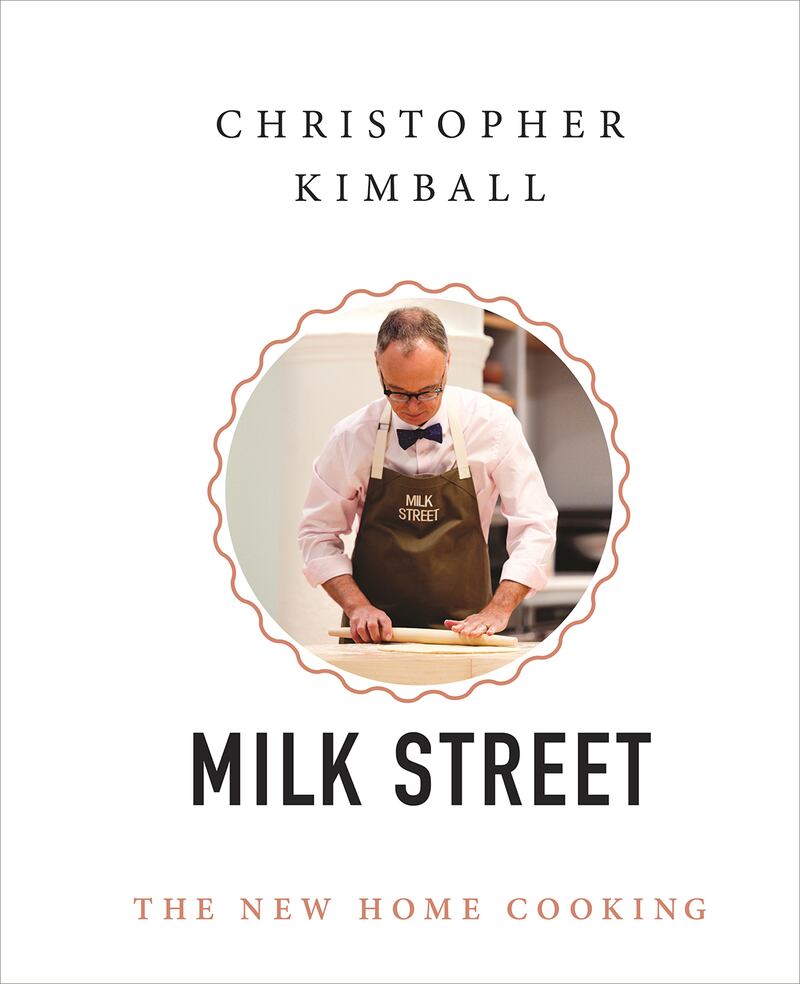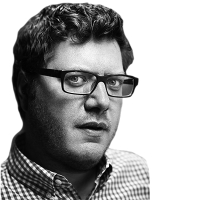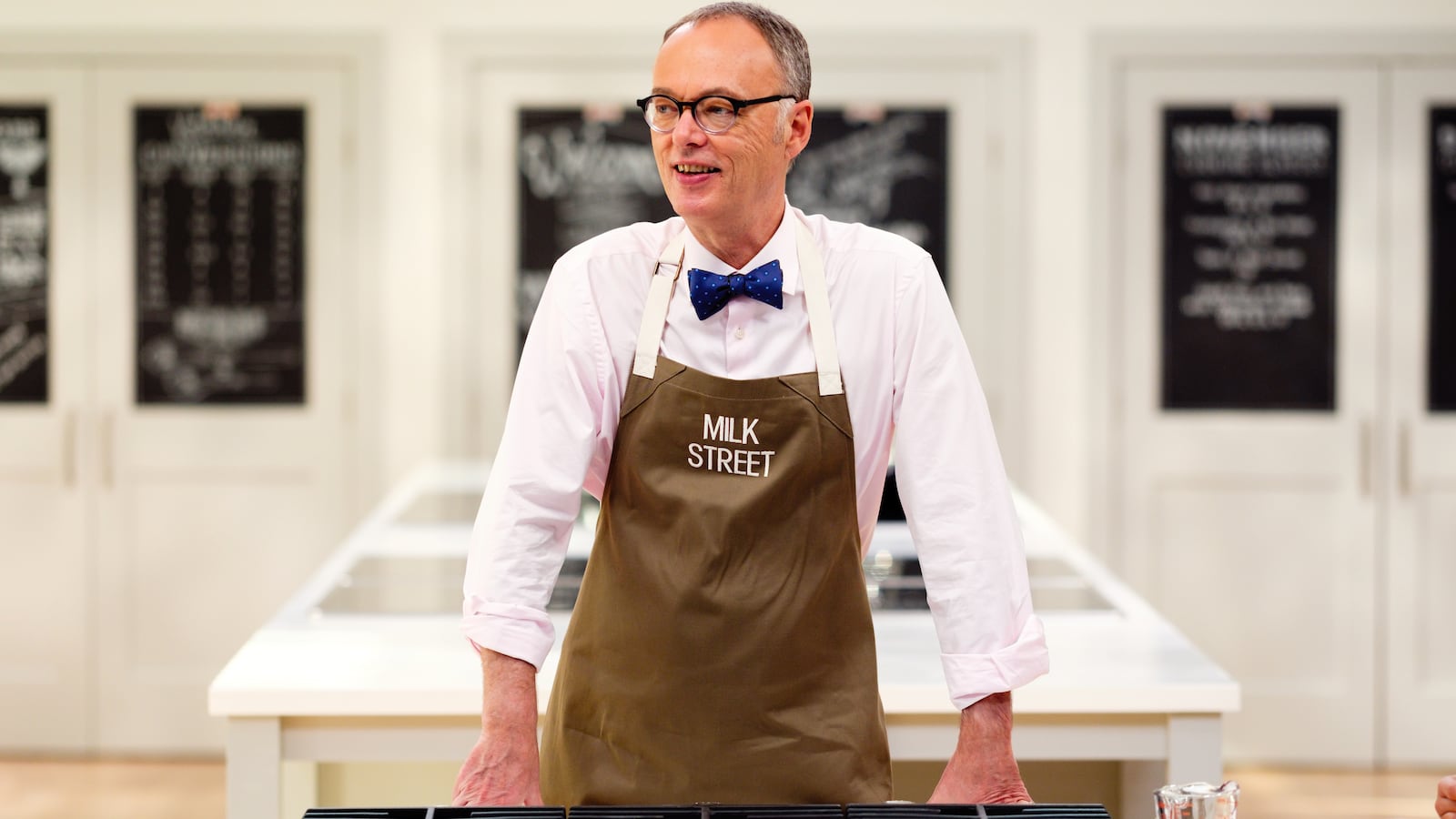After all these years writing about food and cooking food on TV are you still excited to cook at home? “Well, yeah specifically because I figured out that the way I was cooking all those years is fine but there’s this whole new world of how you think about food. I think that’s the premise of my magazine and TV show, Milk Street. American food traditionally was northern European and that made a lot of sense at a certain point and time. It’s essentially taking fairly bland ingredients and using a lot of technique and a lot of heat and a lot of time and creating something that’s wonderful. But if you look around the world that’s not how people think about food at all. It’s very different. They start with chilies or handfuls of herbs not a sprig of something. They have tons of spices and use lots of them. They have fermented sauces, they have lemongrass, ginger, strongly flavored ingredients. The actual cooking is really not as important as starting with lots of different flavors and how you put them together.”
Do you ever consult old standbys like Julia Child’s Mastering the Art of French Cooking or Jacques Pépin’s Complete Techniques? Or are there other cookbooks that are your favorites? “Sure, I certainly cooked out of Julia. I don’t do that anymore. Elizabeth David, I go back to her work a lot. Jacques Pépin certainly for technique. In the last five years, I’ve put aside most of the classics I used to use. Ottolenghi was certainly a watershed moment for me years ago. I think Claire Ptak, The Violet Bakery Cookbook, the way she uses all sorts of different flours and the notion of bitter in baking. Fuchsia Dunlop, Every Grain of Rice and the Land of Fish and Rice, her books are brilliant and she really simplified Chinese cuisine for home cooks. There are lots of people who took the idea of a cuisine and packaged it for the home cook instead of authentically reproducing it. A lot of those old books unfortunately were like Saturday night cooking, right? It wasn’t every night. What I really like is you’re starting to get the stuff for Tuesday night. Now there’s a ton of books that are much more practical and not trying to be authentic. This authentic thing was crazy because why would you want to authentically reproduce something on the Upper East Side of Manhattan from Senegal? It doesn’t make sense, since everything is different. You have nothing in common with that culture. Trying to be authentic is kind of crazy unless you’re trying to run a restaurant, maybe.”
After all these of years of writing about food, I imagine that your kitchen is full of drawers and drawers of cooking tools and gadgets. Am I right? “It used to be that way. I actually now have a smaller kitchen than I used to. I like it better. I don’t have tons of gadgets anymore. I have some knives I love. I’m trying to simplify. I will very often whisk a couple egg whites with a whisk instead of using a standing mixer. I’ll knead dough by hand instead of with a mixer. I have tons of cookbooks. I have a lot of 19th century books.”
Is there one tool that you’re obsessed with? “The one tool that I’ve started to use in the last year that’s really changed my cooking is a Chinese vegetable cleaver. I was with Fuchsia Dunlop in London a year ago and she pulled one out. It was amazing. It’s not like a cleaver. It’s light. It’s a very thin blade. You can chop and slice and do all sorts of things with it much more safely and quicker. I use that as my go-to knife now. I still use a chef’s knife for some things, but I find it easier and better to use the cleaver, plus you can scoop things off the counter with it. You can smash garlic and ginger with it. It’s also safer because you’ve got a deeper blade, so you can put your knuckles up against it and you’re farther away from the cutting edge.”
Rarely have I seen you on TV without an apron on. Do you wear one at home? “I often do. I don’t cook with bowtie at home, though.”
Many chefs and food journalists I’ve met like to cook ahead. Is your fridge full of containers of food? “No. I’m the worst person in the world to plan ahead. I know on Sundays I should be making the four quarts of fill-in-the-blank sauce and freezing it. Very often I make stuff and I forget it’s there. Six months or a year later I’ll come back and it’s all frosty and that bolognese is no good anymore. I tend to cook fast and simple. For years, I used to freeze chicken parts and like years later I’d find them there because I was going to make stock and I almost never did.”

Ha! That makes me feel better. My freezer is where brown bananas go to die. I always save them with the hope of making banana bread, which my family only bakes occasionally. “I used to have bigger freezers and I discovered, as you said, it’s a burying ground. So, I now have in the basement two refrigerator/freezers but the freezer [sections] is tiny at the bottom. The rest of it is refrigerator.”
Is there a certain type of music you like to listen to while you cook? “The problem is my wife, Melissa, who is actually co-founder of Milk Street, her taste in music and mine do not overlap on any level. I’m a Dead Head from way back from 1970. I still do tend to listen to the Grateful Dead a lot and some old-timey music and some country. And she’s definitely more into hip hop. She’ll be listening to Beyoncé and I’ll be listening to Jerry Garcia. If she’s not in the kitchen, then yes. If we’re both in the kitchen, then we have to have peace, which means no music.”
Christopher Kimball’s new book, Milk Street: The New Home Cooking, is available now.
Interview has been condensed and edited.






